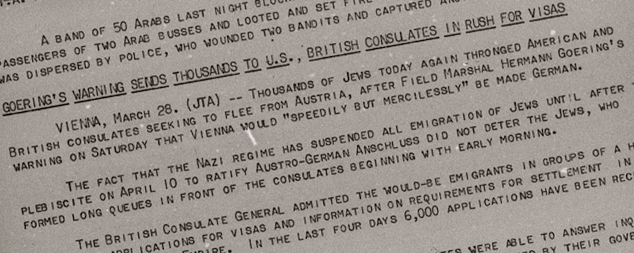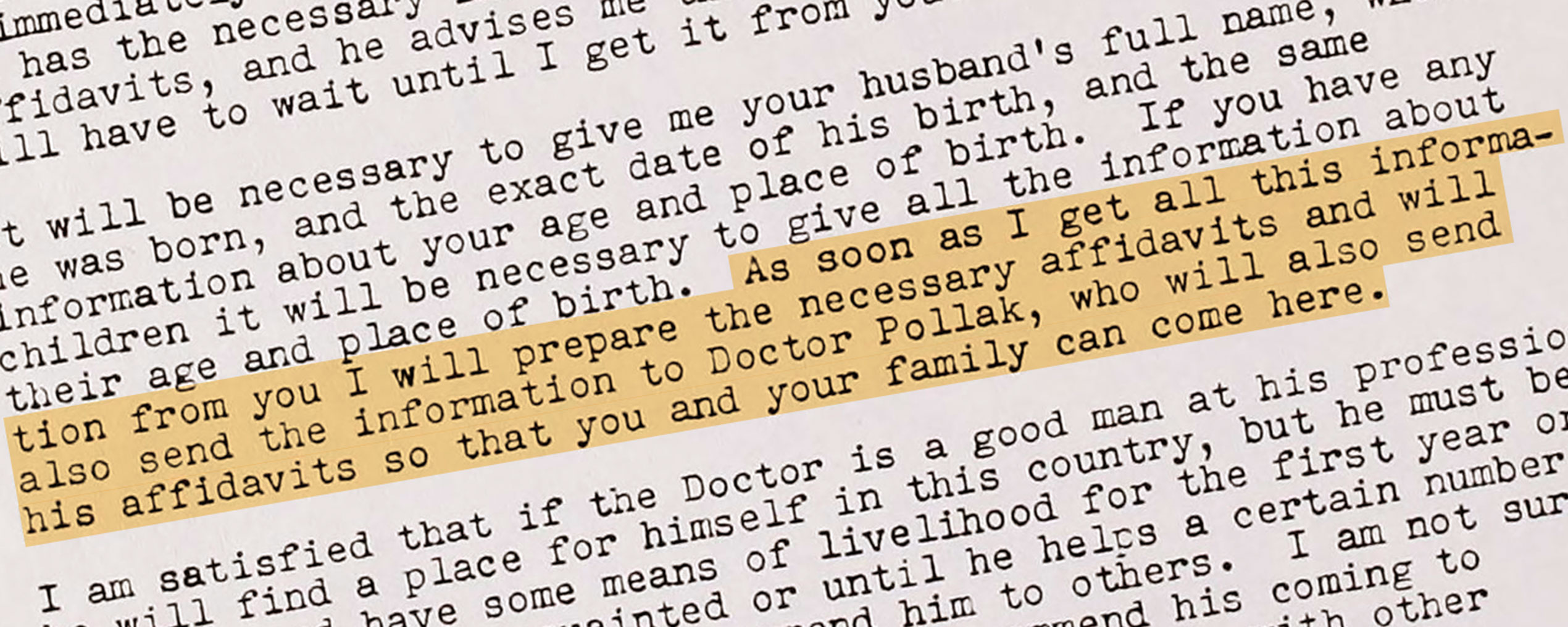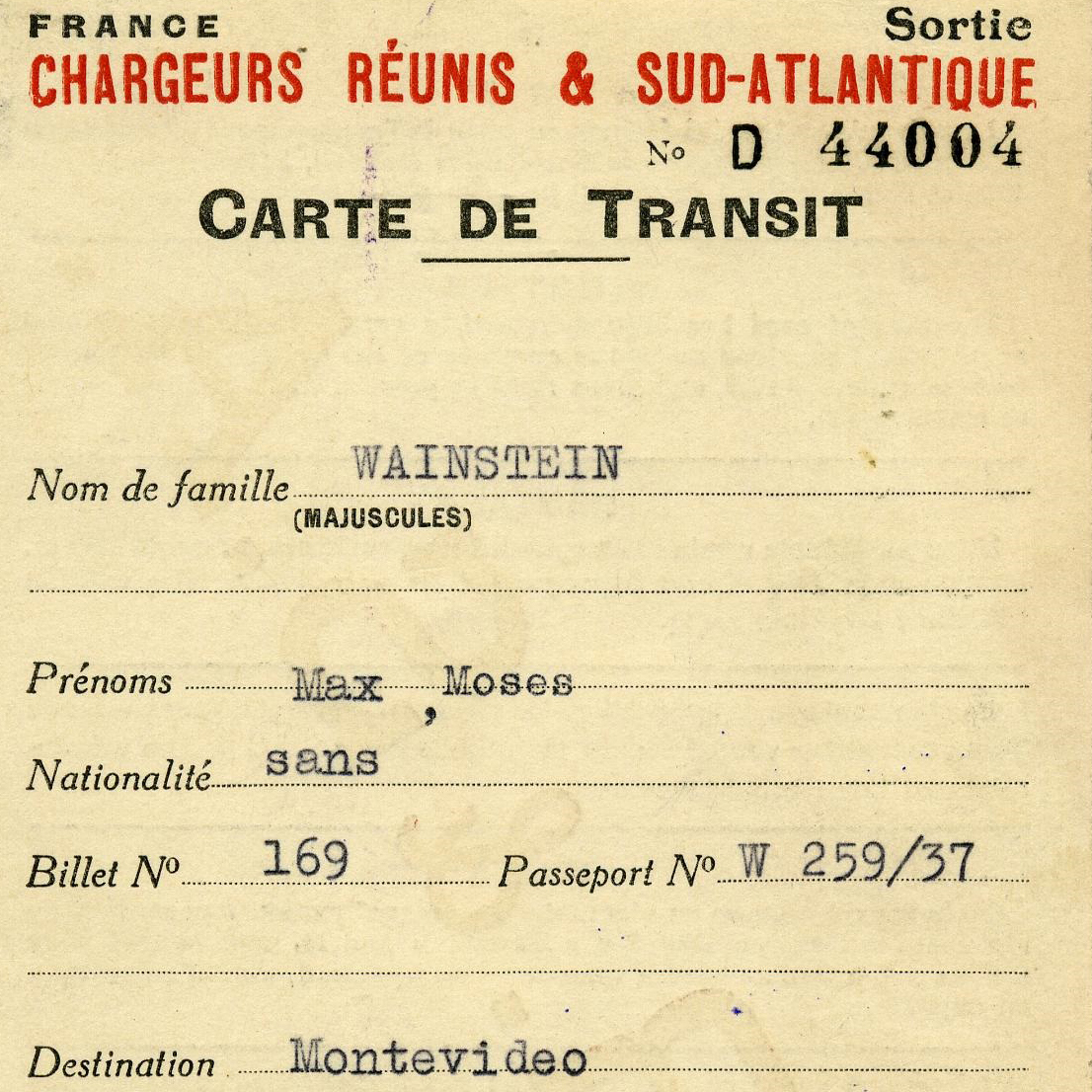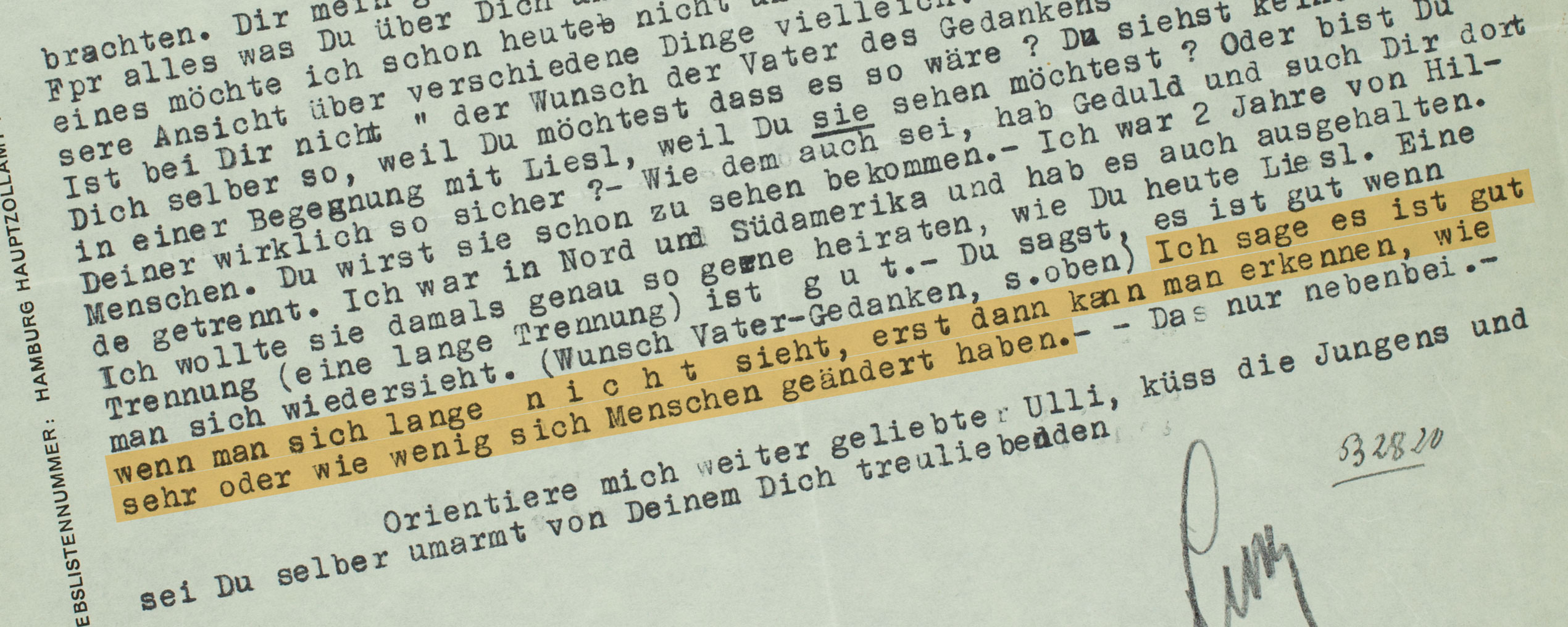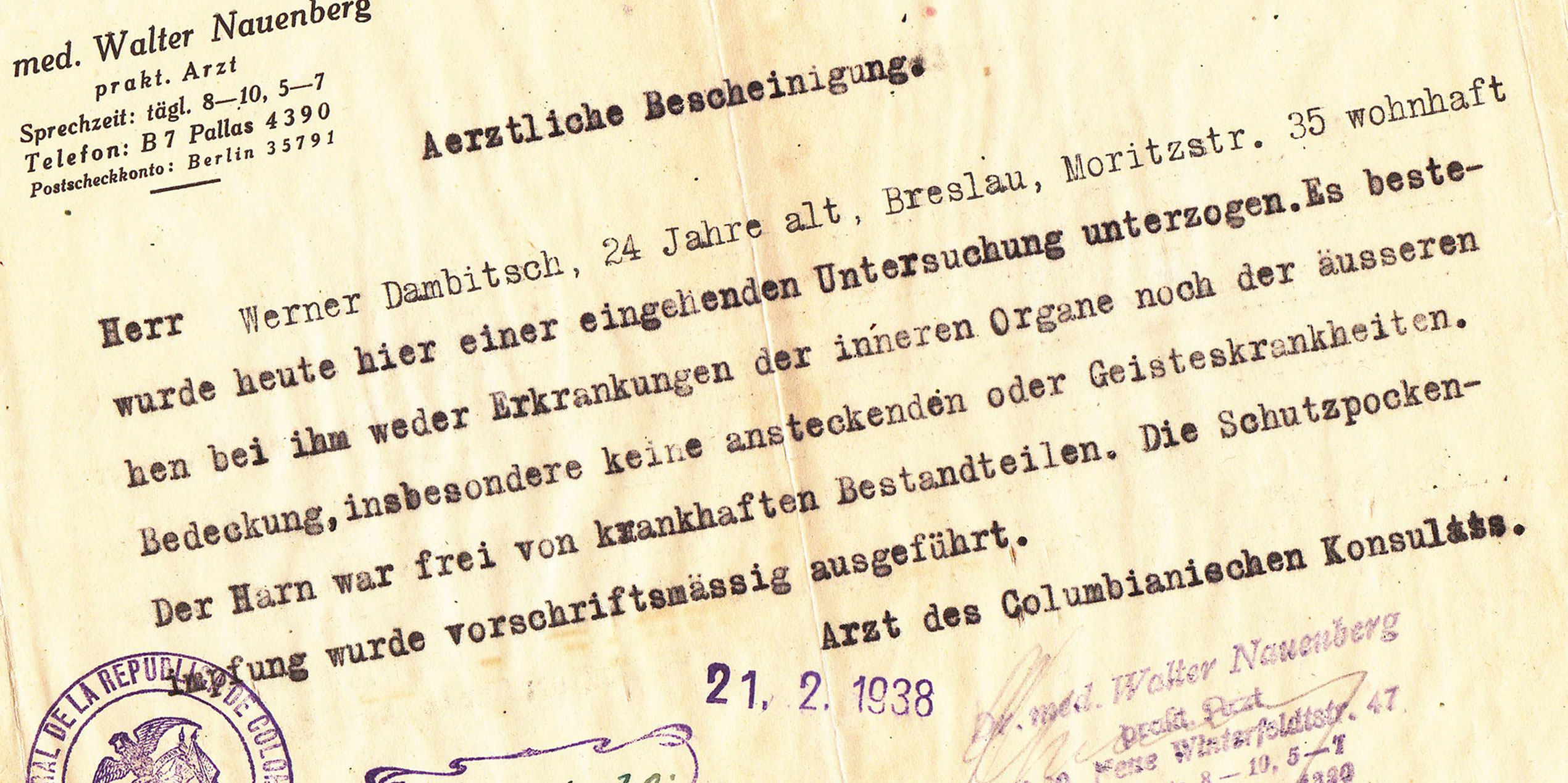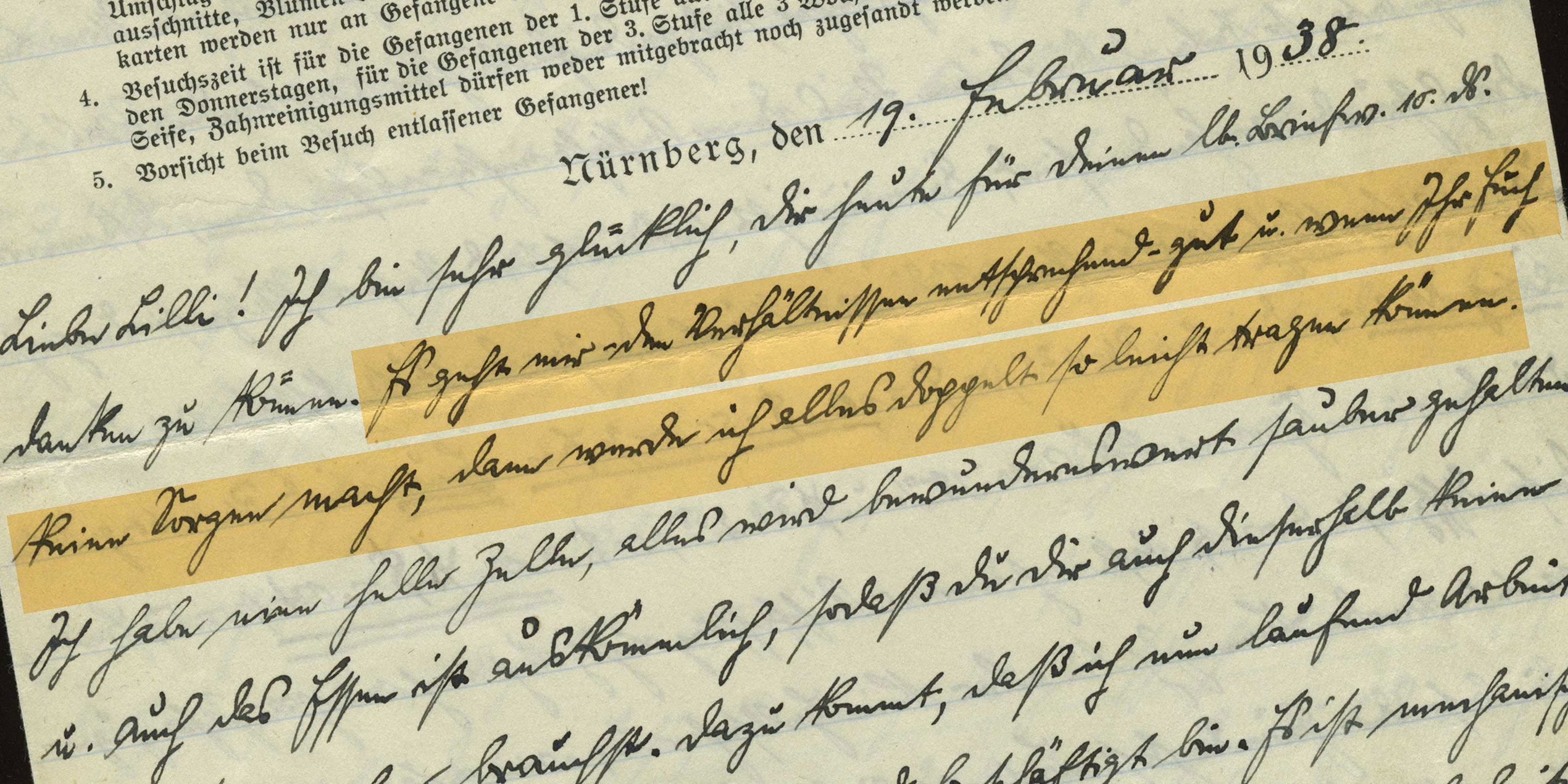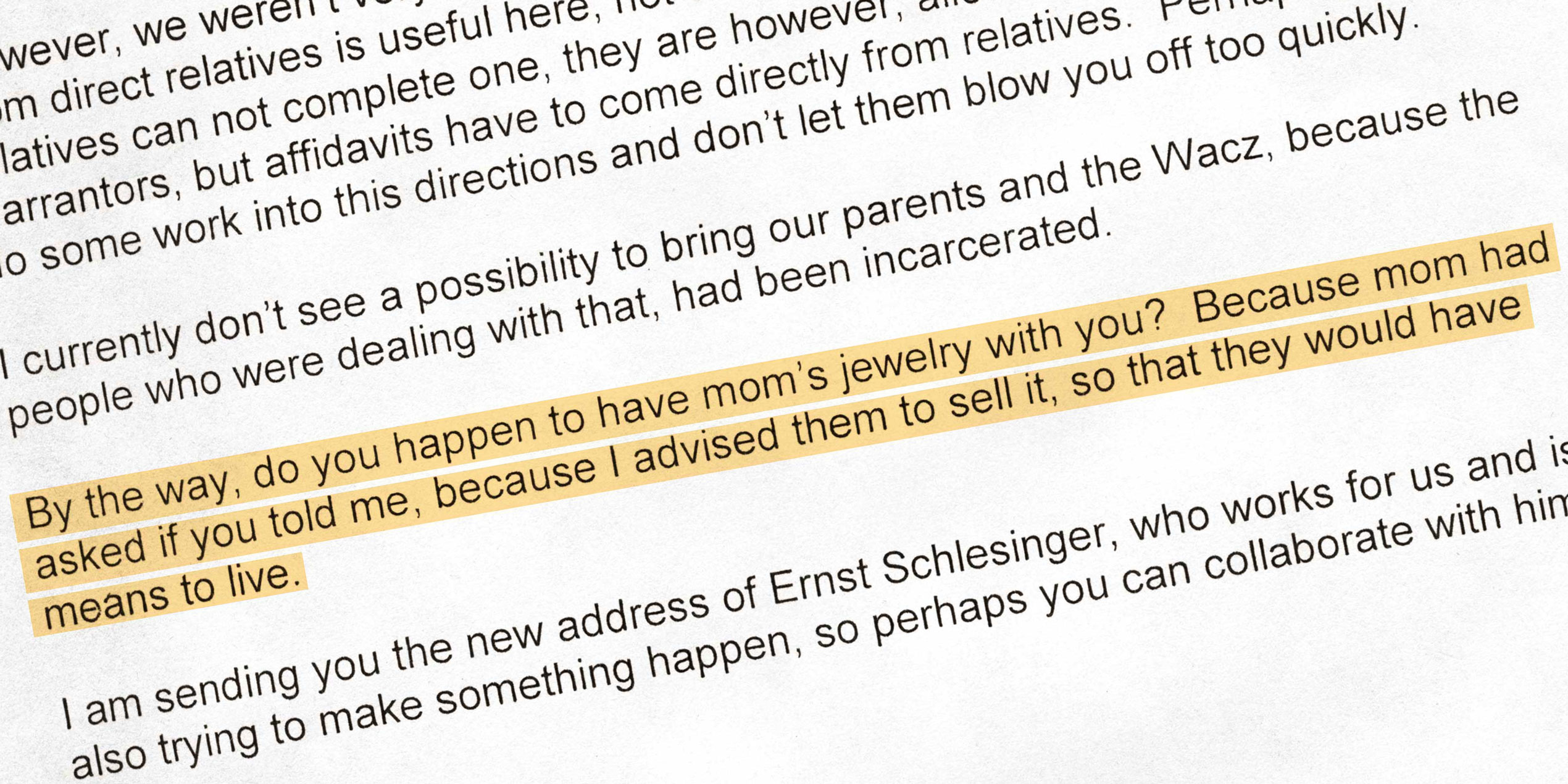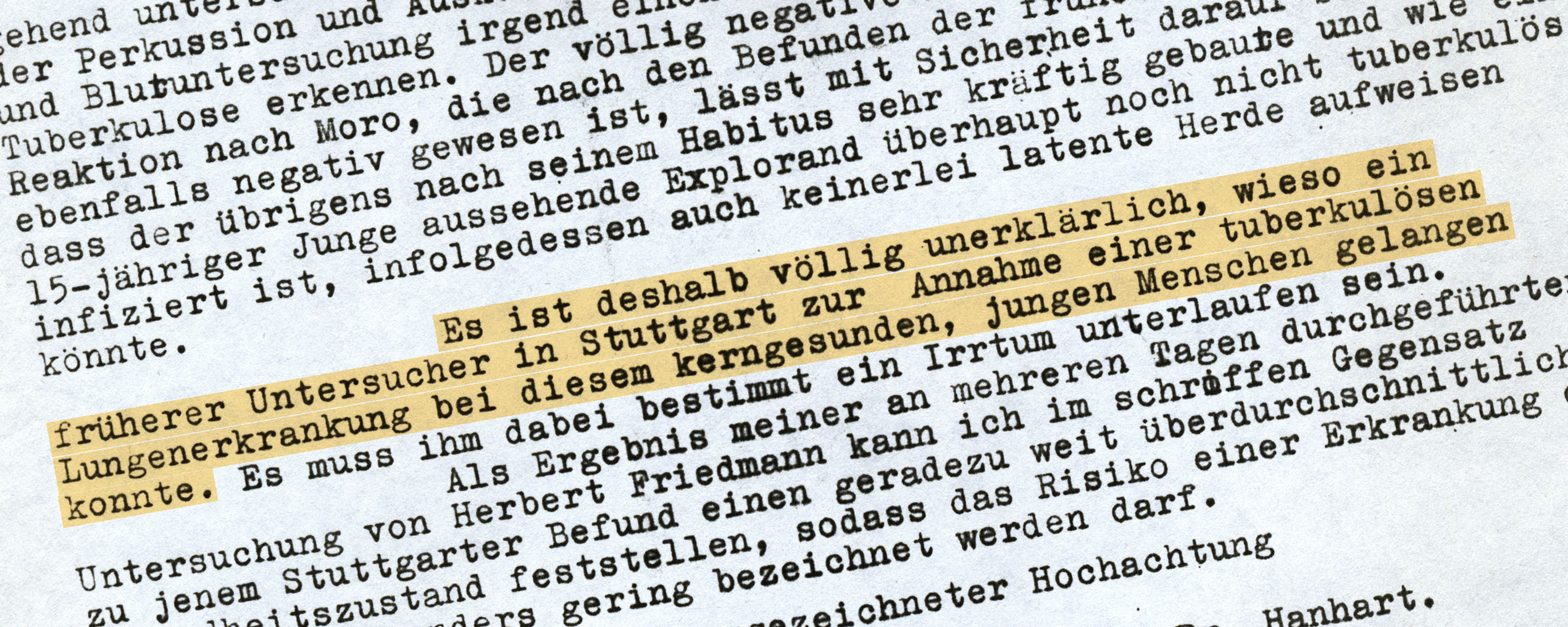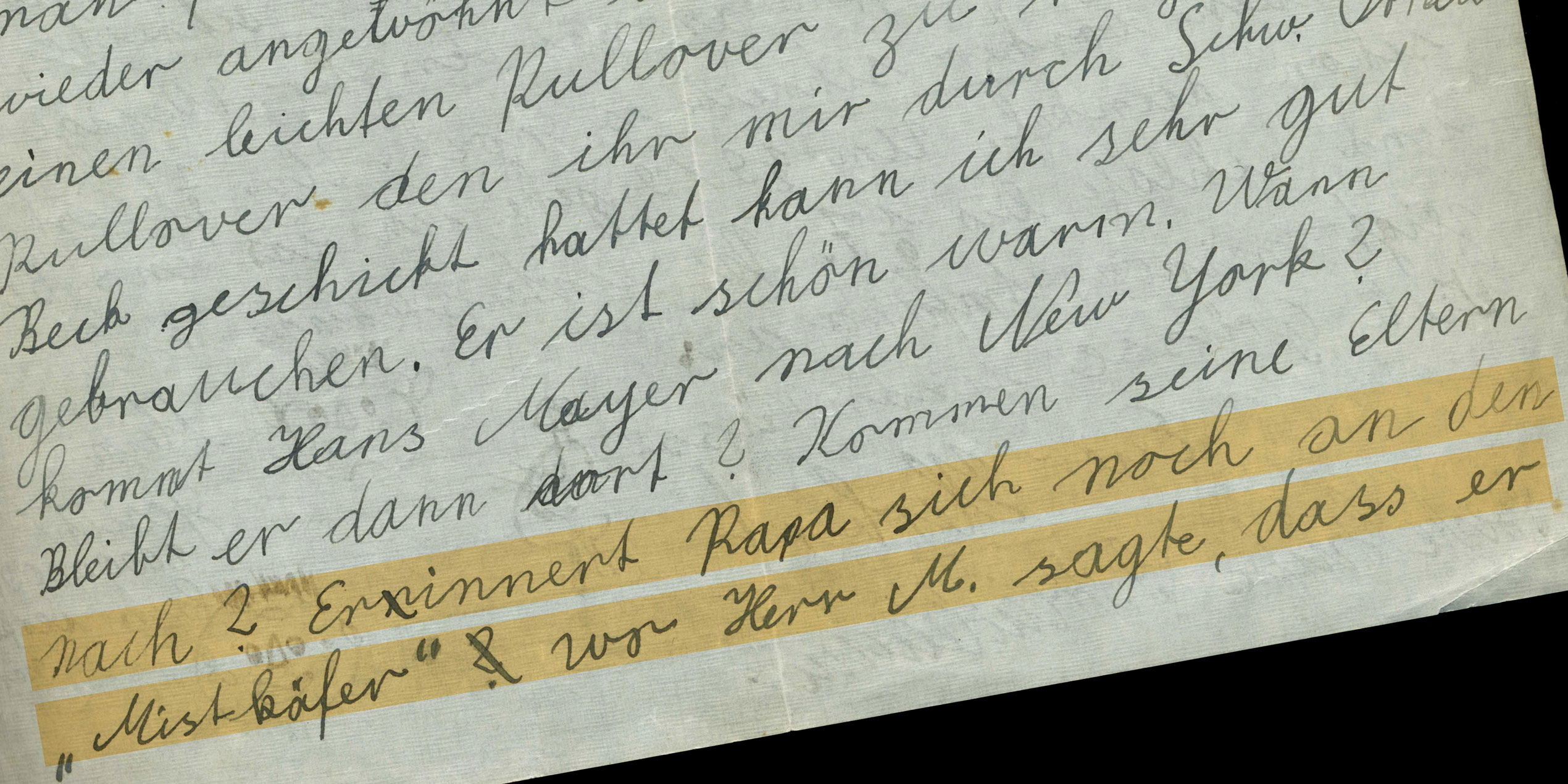One man can only do so much
An Austrian in Buffalo overwhelmed by calls for aid
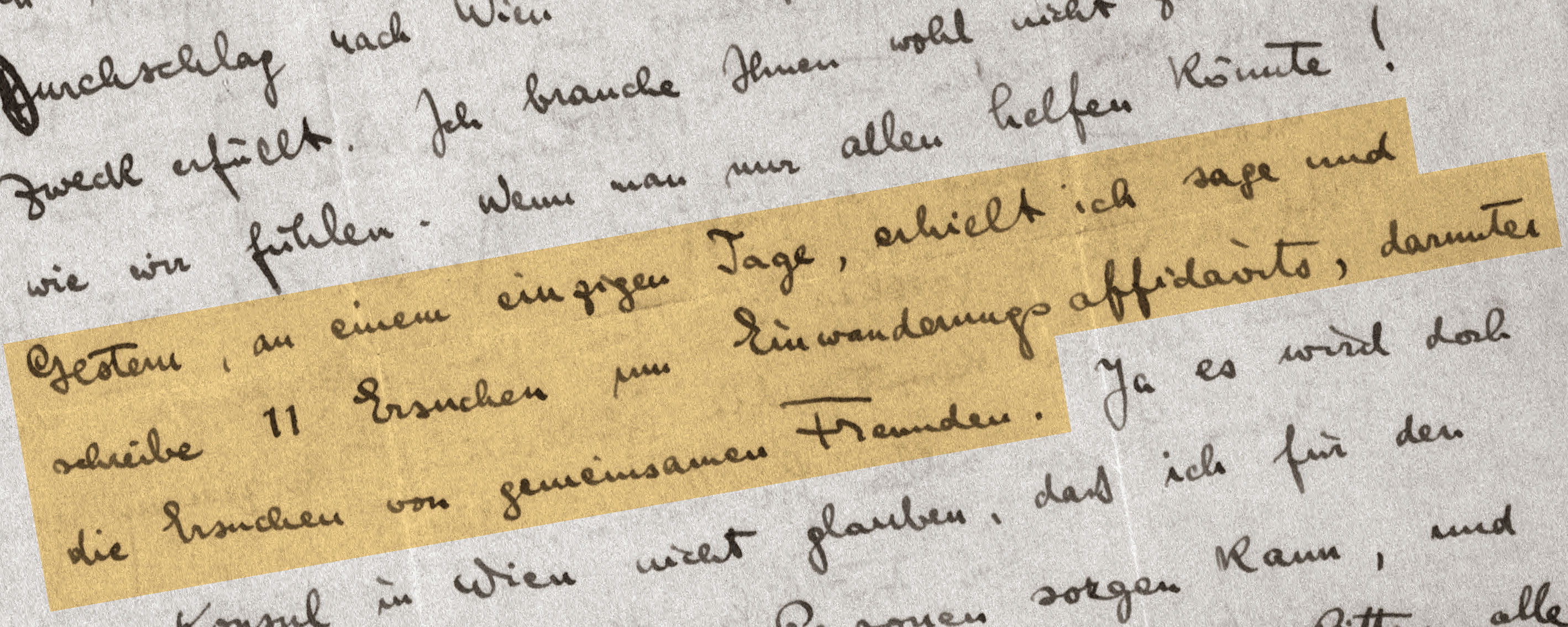
“Yesterday, within a single day, I received a whopping 11 requests for immigration affidavits, among them requests from mutual friends.”
Buffalo, New York/Vienna
Thanks to a Rockefeller fellowship awarded to him in 1933, the distinguished Viennese economist Fritz Machlup had left Austria years before the “Anschluss.” In 1935, he was appointed Professor of Economics at the University of Buffalo. As was to be expected, after the Nazis established their hold in Austria, friends and colleagues pinned their hopes on him as a guarantor. In this April 5 missive to his friend Alfred Schütz, he expresses concern that his letters of support might lose credibility because he had written so many, but nevertheless includes a note in English offering to assist Schütz in establishing himself in the US.
SOURCE
Institution:
Leo Baeck Institute – New York | Berlin 
Collection:
Alfred Schutz Collection, AR 25500 
Original:
Box 1, folder 17








































